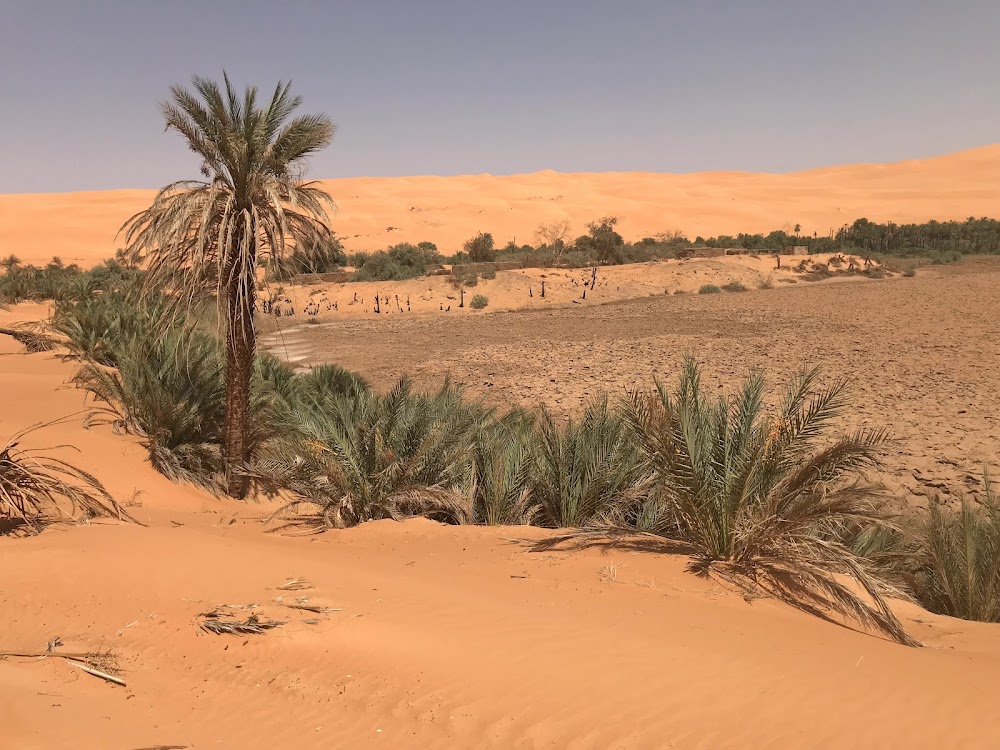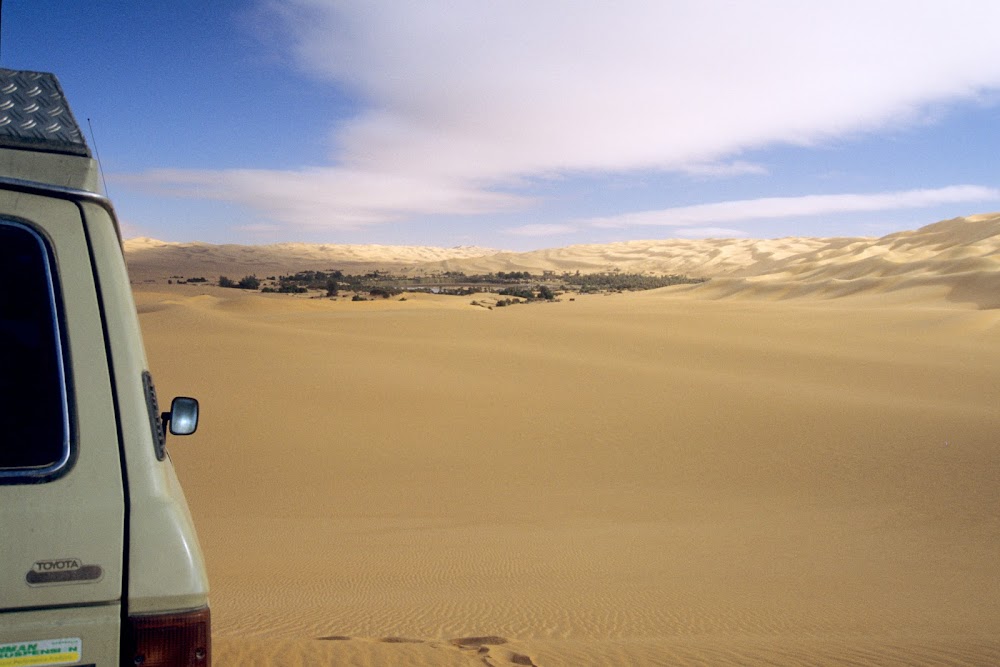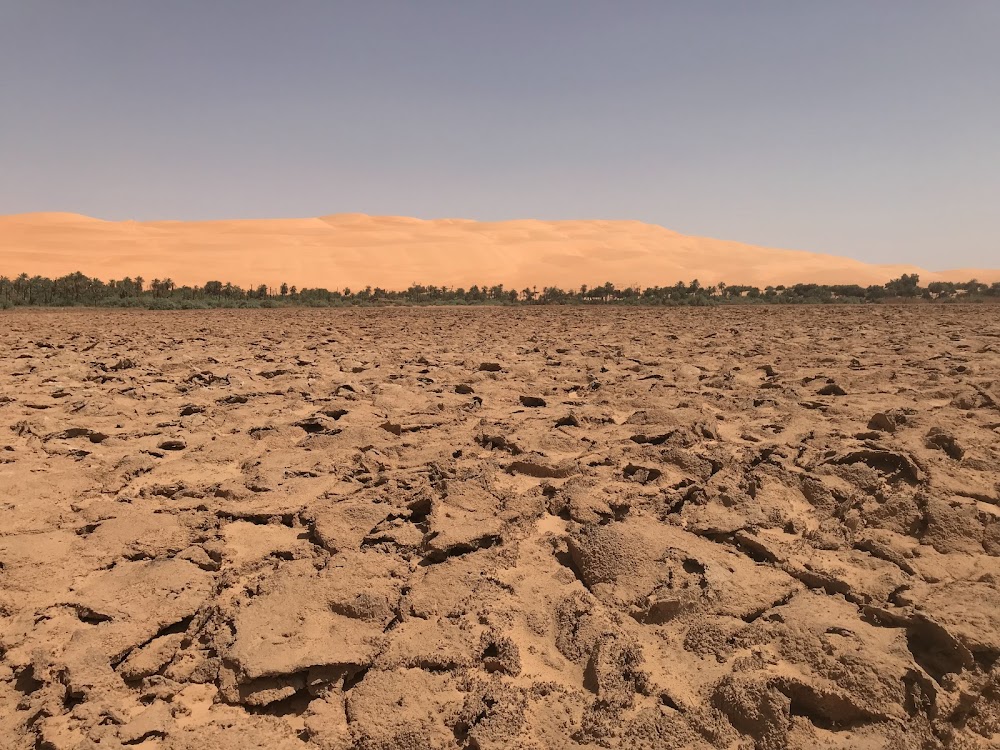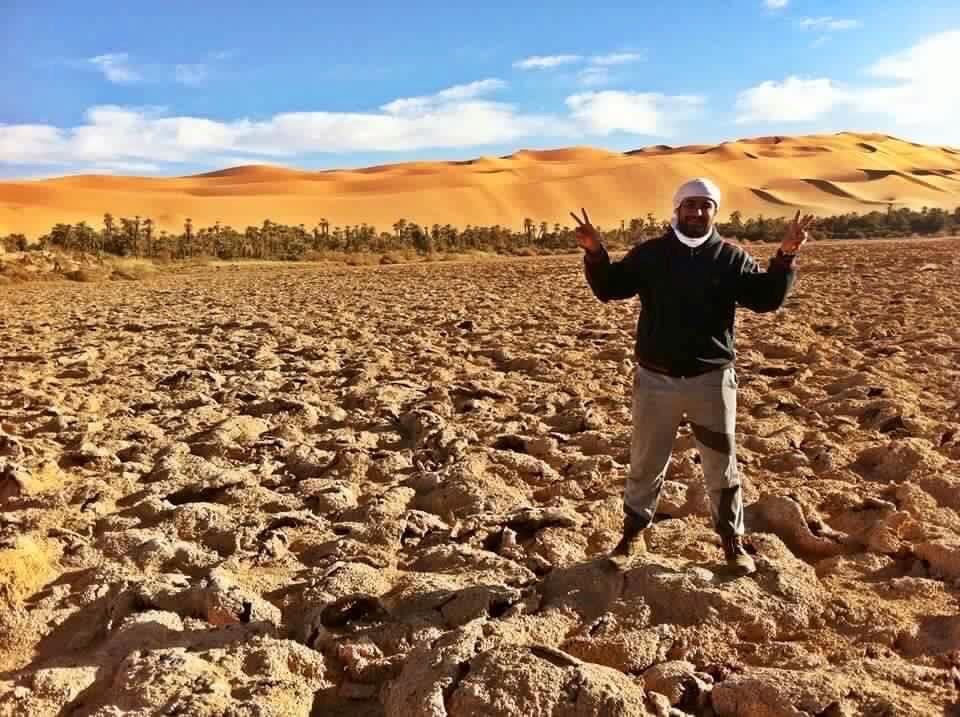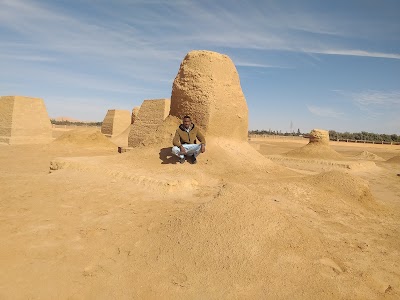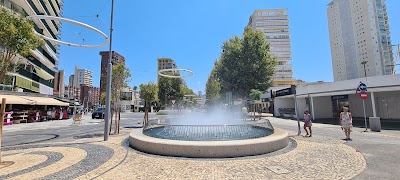Mandara Lakes (بحيرات مندرة)
Overview
**Mandara Lake: A Hidden Gem in the Libyan Desert**
Nestled in the Wadi al Hayaa District of Libya, **Mandara Lake** is a captivating oasis that stands out amidst the vast desert landscape. This pristine body of water not only boasts a unique history but also represents a remarkable effort to harness natural resources for the benefit of the local community and ecosystem.
The origins of Mandara Lake are a fascinating blend of natural phenomena and human ingenuity. Over millennia, the Wadi al Hayaa District has been sculpted by wind erosion and sediment deposition, forming a natural basin capable of holding water. However, it was not until a concerted initiative in the mid-20th century that this latent potential was fully realized.
Recognizing the need for a sustainable water source to support agriculture and local wildlife, local authorities and environmentalists embarked on the project to develop Mandara Lake in the 1960s. Engineers deepened the natural basin, lined it with clay and modern materials to prevent seepage, and constructed channels to divert water from seasonal streams and underground aquifers.
The lake is primarily replenished by sporadic but significant rainfall during the rainy season, allowing the water to flow into the basin. In addition, engineers implemented a system of pumps and pipes to draw from underground sources, ensuring a steady supply even during dry spells. This harmonious blend of natural water collection and human innovation has enabled Mandara Lake to maintain consistent water levels throughout the year.
**Ecological Impact and Biodiversity**
The ecological considerations of this project were paramount. Planners ensured that Mandara Lake would not only meet human needs but also enhance the local habitat. Over the years, the lake has transformed into a sanctuary for various bird species, including migratory birds that stop for rest on their long journeys. The introduction of aquatic plants and fish has fostered a thriving ecosystem that supports a diverse array of wildlife.
The socio-economic effects of Mandara Lake have been profound. It serves as the lifeblood for local agriculture, empowering farmers to irrigate crops and sustain livestock even in challenging climatic conditions. This agricultural boost has led to increased food production and improved livelihoods for surrounding communities. Moreover, the lake has become a tourist attraction, drawing visitors eager to experience its serene beauty and rich biodiversity.
The presence of Mandara Lake has also positively impacted its surroundings. Trees have been planted along the banks, creating a greenbelt that combats desertification while providing a cooler microclimate. Recreational areas have been established, offering residents and tourists a tranquil space to relax and connect with nature.
**Community Involvement and Sustainability**
The establishment and ongoing maintenance of Mandara Lake is a collaborative endeavor. Local communities play a vital role in preserving the lake's health through sustainable practices and participation in regular clean-up initiatives. Educational programs have been introduced to promote awareness about the importance of water conservation and the ecological value of the lake.
In summary, **Mandara Lake** in the Wadi al Hayaa District of Libya stands as a testament to visionary planning that marries natural potential with human innovation. Through careful consideration of ecological factors and active community involvement, this man-made lake has not only transformed the local landscape but also provided enduring benefits for both people and wildlife. Its story is one of resilience and harmony, demonstrating how sustainable development can flourish even in the most challenging environments.


